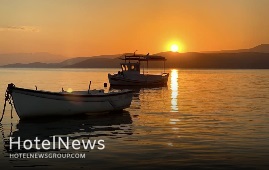
Greek Prime Minister Kyriakos Mitsotakis forecast a strong rebound in tourism in the summer of 2021, saying speedy vaccination drives in key markets for Greece, including Britain and Israel, will pave the way for tourists to return despite the current industry’s gloom, according to a report out of Reuters on Thursday. Tourism, which accounts for about 20 percent of the Greek economy and directly employs one in five workers, collapsed last year as the coronavirus pandemic sent its revenues slumping to 4 billion euros from a high of 18 billion in 2019, according to the report. Since last summer, when the pandemic subsided across Europe, the virus has surged once again, triggering renewed lockdowns and travel restrictions and pushing the region’s death toll above 750,000. Vaccines are now making their way through the most critical populations but the supply is lagging all over the world. “I am a realist, but I am also cautiously optimistic that we will do much better than last year,” Mitsotakis told Reuters. The Prime Minister also defended a decision to coordinate EU member states’ vaccine purchases through the European Commission, saying the bloc’s smaller countries would have faced serious problems negotiating deals on their own.
Create: Feb 5, 2021 Edit: Feb 5, 2021 International News
Tourism to Costa Rica will likely stagnate this year at the sharply reduced levels of 2020 because of the COVID-19 pandemic, weighing on the economy of the Central American country, a top government official said. Tourism Minister Gustavo Segura said Costa Rica will in 2021 probably receive about one-third of the 3,139,000 international tourists it had in 2019, on a par with last year, when some 1,011,000 foreign visitors arrived, official data shows, Reuters reported. In an interview, Segura said around 75,000 tourists came to Costa Rica in December, down from 327,000 a year earlier, underlining the challenge facing the popular tourist destination and the industry as a whole in Latin America. “Though the figures are better than those of some competitor nations, many companies can’t get going again,” Segura told Reuters, noting that the extent of recovery would depend on how the pandemic developed and how vaccination efforts progressed. Battered by the loss of tourists, the Costa Rican hotel and restaurant trade shrank by 40% last year, the central bank said. In 2019, tourism represented 8.5% of gross domestic product and 9% of formal jobs in the country of 5 million people. Segura projected that in 2021 it will only be worth around 3.5% of GDP and that the industry will shed about half the employment it generated, or about 100,000 jobs. The minister was hopeful that Costa Rica’s focus on nature tourism would reduce some of the attendant risk with people being outdoors. He also pointed to the fact the country’s health system had managed to avoid saturating its hospitals. Costa Rica has to date registered 193,276 infections and 2,604 deaths linked to COVID-19.
Create: Feb 3, 2021 Edit: Feb 3, 2021 International News
Saudi Arabia’s statistics authority will begin tracking tourism’s contribution to its economic output, according to a statement on Saturday. The Tourism Establishment Survey will provide data on the industry, including the size of the workforce, pay and revenue and expenditure. This will help calculate tourism’s share of gross domestic product and establish growth rates for activities within the sector, the General Authority for Statistics said. On Thursday, Saudi Arabia’s sovereign fund announced it had formed a company, called Cruise Saudi, to develop a local cruise industry as Crown Prince Mohammed Bin Salman tries to turn the Kingdom into a global tourism destination. Saudi Arabia’s tourism authority announced in December 2020 the launch of the Saudi ‘Arabian Winter’ season designed to attract visitors to more than 17 destinations across the Kingdom. The campaign will run from 10 December 2020 until the end of March 2021
Create: Feb 2, 2021 Edit: Feb 2, 2021 International News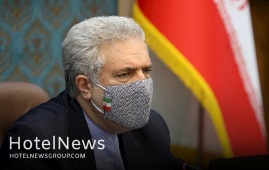
Iranian tourism minister has hailed the impact of handicrafts businesses on the economy of the country, saying its results are now evident on people's jobs and their livelihoods. “Unlike large projects and businesses, whose economic outcomes mostly appear in the long run, the impact of small businesses is now visible [in the field of handicrafts]” Cultural Heritage, Tourism, and Handicrafts Minister Ali-Asghar Mounesan said on Monday. Paying attention to the small businesses will lead to justice and the fair distribution of wealth, the official added. However, comparing small businesses with large investments is short-sighted as the small businesses receive the least support, while balancing these two fields seems important as well, he explained. While large businesses are mostly financed by the government, small businesses help improve people’s economy therefore the latter needs special attention, the minister said. Elsewhere in his remarks, Mounesan said that the small businesses in the field of handicrafts could be created with a small amount of investment, which could be a solution for one of the most important issues in the country, which is unemployment. To support artisans and crafters as much as possible, commercializing of handicrafts has been started which is expected to have a good effect on the hand-made products’ marketing and sales, he added. Earlier this week, the minister said that the sale of handicrafts is partly related to the prosperity of tourism and the presence of foreign tourists in the country. He also said that the national budget bill for the next calendar year (starting on March 20) has proposed 70 trillion rials (about $1.7 billion) to support tourism businesses affected by the coronavirus pandemic. With 14 entries, Iran ranks first globally for the number of cities and villages registered by the World Crafts Council, as China with seven entries, Chile with four, and India with three ones come next. In January 2020, the cities of Shiraz, Malayer, and Zanjan and the village of Qassemabad were designated by the WCC- Asia Pacific Region, putting Iran’s number of world crafts cities and villages from ten to 14. Shiraz was named a “world city of [diverse] handicrafts”. Malayer was made a global hub for woodcarving and carved-wood furniture. Zanjan gained the title of a “world city of filigree”. And Qassemabad village, which is nationally known for its traditional costumes, was also promoted to a world hub of handicrafts. Chador Shab, a kind of homemade outer-garment for women, was, however, the main subject for the WCC assessment for the village. Back in May, deputy tourism minister Pouya Mahmoudian said that some 295 fields of handicrafts are currently practiced across Iran with more than two million people engaging, the majority of whom are women. She also noted that handicrafts play an important role in the economy in rural areas. Iran exported $523 million worth of handicrafts during the past calendar year 1398 (ended March 19). Of the figure, some $273 million worth of handicrafts were exported officially through customs, and about $250 million was earned via suitcase trade (allowed for customs-free and tax-free transfer) through various provinces, according to data provided by the Ministry of Cultural Heritage, Tourism and Handicrafts. Ceramics, pottery vessels, handwoven cloths as well as personal ornamentations with precious and semi-precious gemstones are traditionally exported to Iraq, Afghanistan, Germany, the U.S., the UK, and other countries.
Create: Jan 28, 2021 Edit: Jan 28, 2021 Regional News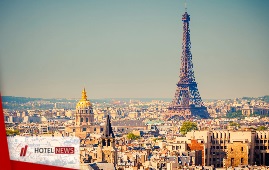
The corona outbreak in the travel and tourism sector alone has cost the global economy about 1.8 trillion. The corona outbreak is estimated to put some 46 million travel and tourism-related jobs at risk worldwide. This figure has been 4.8 million jobs in the aviation industry alone.
Create: Oct 4, 2020 Edit: Oct 6, 2020 International News
"Alireza Bai", the head of the Public Relations and Information Center of the Ministry of Tourism, said at the press conference of Tourism Week; The word tourism subconsciously reminds us of prosperity and the economy. The tourism industry in Iran is a lever to get rid of the oil-based economy and therefore has a special place in the country. Corona damages in the field of tourism have affected countries around the world, even countries with a history such as Spain, France, Italy and the United States.
Create: Sep 30, 2020 Edit: Sep 30, 2020 Regional News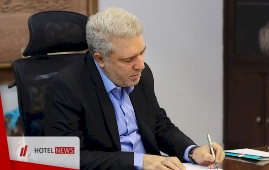
“There is no doubt that tourism development in Iran and throughout the world can unify and share the national benefits and promote the culture of tolerance,” Mounesan said in a message issued on the occasion of World Tourism Day. “September 27th, the World Tourism Day, has been also included in our formal calendar as 'the national tourism day'. This day is also concurrent with ‘the Holy (Sacred) Defense National Week’, the event that all of us are indebted to; we are all are indebted to the sacrifice and self-devotion of the Iranian brave youth who defended the country.” He also expressed delight that segments of the Sacred Defense reminiscences constitute tourist destinations in the country, noting “Fortunately, a part of the Holy Defense memories is registered as an important tourist destination through the committee of Rahian-e Noor (the Pursuers of Glory).” The minister referred to the slogan that the World Tourism Organization has selected for the 2020 World Tourism Day, saying: “This year’s slogan is ‘Tourism and Rural Development’, something that all tourism activists believe that villages and villagers are playing a crucial role in tourism, especially in ecolodges.” “We hope that our plans for setting up 2,000 ecolodge units throughout the country would be a promising event to build up the rural regions. A 50% increase in the number of accommodation units in Iran and the addition of travel to the household commodities can affect the economy and development of less-developed, lesser-known, and rural regions.” “There is no doubt that tourism development in Iran and throughout the world can unify and share the national benefits and promote the culture of tolerance. So, it can be said that World Tourism Day is the day of international solidarity, the day when the struggle is substituted by mutual understanding and the understanding of tourism philosophy can lead to a better understanding of the world.” Referring to the predicaments the tourism industry faced during the past Iranian calendar year (ended March 2020), Mounesan said: “Last year was a tough one; it was started by the deadly floods and ended with the spread of COVID-19. Nevertheless, at the end of last year, we broke the record of inbound tourism with 8,800,000 foreign tourists. During this crisis, we tried to support the tourism units financially and spiritually to be able to witness their development is the post-corona period.” “As President Rouhani said during the opening ceremony of 87 tourism projects in 15 different provinces, paying attention to the spiritual, cultural and historical aspect of our various tourist attractions is of utmost importance, we hope that with the help and participation of people and the private/governmental investors, we would be able to satisfy our responsibility as it suits our amazing country.” “In the end, I want to congratulate the World Tourism Day to all tourism activists, beneficiaries, and enthusiasts and wish a brighter future f other tourism industry of Iran.” Mounesan said last month “Corona is a [bitter] reality but it cannot bring traveling to a complete standstill” as he underlined that “people’s health is our first priority.” “If coronavirus-related restrictions persist, the tourism industry of the country will suffer irreparable losses and many tourism insiders will be bankrupt… it’s time to replace ‘smart and responsible traveling’ with ‘do not travel’ recommendations.” The minister announced in August that Iran’s travel sector had suffered a loss of 12 trillion rials (some $2.85 billion at the official rate of 42,000 rials) since the outbreak of the coronavirus pandemic.
Create: Sep 27, 2020 Edit: Sep 30, 2020 Regional News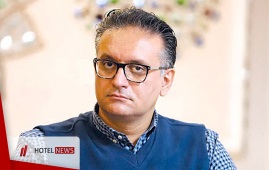
"Farzin Hagdal", the Deputy Minister of Economy and Investment of Chabahar Free Zone, said in an exclusive interview with Hotel News; All necessary permits and standards have been obtained for the construction of Chabahar International Airport, and the Chabahar Free Zone is committed to completing this project. The Chabahar Free Zone is the gateway for domestic and foreign tourists to the southeast of the country, especially the Makran coast. Disputes over the past years have hampered the development of the Chabahar Free Zone in various areas, including tourism infrastructure, such as the construction of an international airport.
Create: Sep 15, 2020 Edit: Sep 19, 2020 Regional News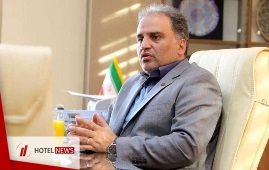
"Jamaluddin Azizi", the mayor of Yazd, spoke at a symposium of tourism activists; The tourism industry must have a plan to guide tourists because people travel in such conditions. All devices must be aligned and we must accept that the city and economy of Yazd depend on the presence of tourists, of course, by observing health protocols.
Create: Aug 29, 2020 Edit: Aug 29, 2020 Regional News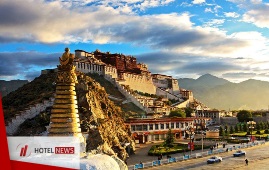
The global tourism industry will suffer at least 1.2 trillion dollars this year, which is equivalent to 1.5 percent of the global economy. If the situation remains the same and the restrictions continue until March 2021, it could be much higher and reach 3.3 trillion dollars. This huge loss to the tourism industry will have a much more devastating effect on developing countries.
Create: Aug 23, 2020 Edit: Aug 23, 2020 International News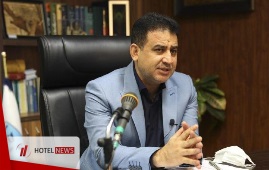
"Hossein Gharabaghi" Chairman of the Economy, Investment and Tourism Commission of Hamadan City Council; Due to the investigations, unfortunately, the tourism sector has suffered the most with the outbreak of this virus. The outbreak of coronavirus is just one of the causes of damage to tourism, and some policies need to be amended. Due to the prevalence of coronavirus and the emptiness of most hotels, we unfortunately see that unauthorized guest houses have accommodated tourists and guests without observing health protocols.
Create: Aug 23, 2020 Edit: Aug 23, 2020 Regional News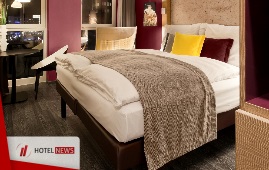
⚜️ As someone who spends well over 100 nights a year in hotels, I thought it was high time to put together a post with my thoughts about what every hotel room should offer (and what they definitely should not) in addition to all the basics like free WiFi, good personalized A/C and heating, and, you know, running water. Some of these are obvious – with the proliferation of lightweight laptops, smartphones, tablets and more, every hotel room should have an abundance of power outlets – while others might be more TPG-specific. However, these are things I’d like to see in every hotel room I book in the future, and feel free to share your own wish list below. 1. Power outlets galore . As I mentioned, we all travel with tons of gadgets these days, from computers and tablets to phones, cameras, music players and more, and the one thing they all have in common is that they must be charged. So it’s astonishing to me how many hotels still lack more than one or two outlets for guest use – you know, where lamps, phones and other odds and ends aren’t already plugged in. Not only that, but every hotel room should have bedside outlets. So many people tote their computers to bed to work while on the road for business, and so many use their Smartphones as alarm clocks (probably because hotel alarm clocks can be so byzantine to operate) that it just makes sense to have outlets near the bed that you can access without ripping the mattress away from the wall. Tons of lamps even come with outlets in their bases to make things easier. Hotels, take note, this should be a standard feature in your rooms. 2. A Nespresso machine . Call me a caffeine fiend, but I believe that every hotel room should have some sort of miniature coffee or espresso machine. Oftentimes, that’s all I want in the morning before grabbing something on the go from a lobby shop or a nearby cafe. I just want to be able to enjoy my first cup of the day in my room as I go through emails and my calendar without having to get dressed, leave the hotel and pick up coffee somewhere else. Or tea. Put in an electric kettle and some tea bags for the tea-drinkers out there. Who knows, maybe I’ll be feeling so productive I’ll order room service and up your revenue with a full-on breakfast if I feel like I’m getting a lot done. 3. A shower that doesn’t take advanced calculus to figure out how to work . Hotel showers can be glorious. Indoor showers, outdoor showers, showers with 12 showerheads, steam showers, rainfall showers…they’re all just wonderful. Except for one thing: so many of them are impossible to operate! Personally, I’m an old-fashioned, one knob for cold water and one for hot and you turn them to adjust the pressure and balance of temperature kind of guy. But so many hotel showers these days have temperature controls, pressure controls, controls to determine which showerhead is operating…I often find myself getting blasted with a rocket of cold water from one direction and volley of scalding drops from another these days. I mean, I love options as much as the next person, but can we please make these things easier to operate so I can get in, clean up and get out? And not to be too American about this, but would it be possible to include both Celsius and Fahrenheit temperatures on the knobs? I can do simple arithmetic on the fly with the best of them, but I don’t want to have to panic and try to figure out why 47 degrees is so hot. 4. Toothbrush and toothpaste . Call it a symptom of always being on the road, but I forget a toothbrush and toothpaste a lot when I travel and it would be such a nice surprise to find a mini travel kit in my hotel room when I arrive. If airlines can do it in amenity kits – and I’m not just talking business and first class ones here, but some airlines offer it in economy as well – then hotels can provide a mini oral hygiene set to guests. 5. Free water bottles . It’s midnight. You’re off a really long flight. You’re parched. All the stores are closed. All you want is a bottle of water, especially if you’re in a place where the water might not be potable for you. Any water will do – it doesn’t have to be Evian – but your only choices are in the minibar and they each cost $10. Why is that? Hotels need to start offering guests two free water bottles per day (that’s the other thing – even if you get a couple free bottles, it’s a one-time thing with a lot of hotels – once you drink them that’s it!). We would all appreciate it, and it’s such a simple provision. 6. A room service menu that doesn’t take 20 clicks on the TV screen to navigate and order from . This is another old-fashioned quirk of mine, but as much as I love new technology, sometimes just having a paper menu and calling down to room service is just so much easier than trying to learn to navigate a hotel’s “state of the art” television ordering system. If you’re going to put such a system in place, put an iPad in my room and let me order from there, which is so much easier. To be continue...
Create: Aug 9, 2020 Edit: Aug 11, 2020 Language Academy
